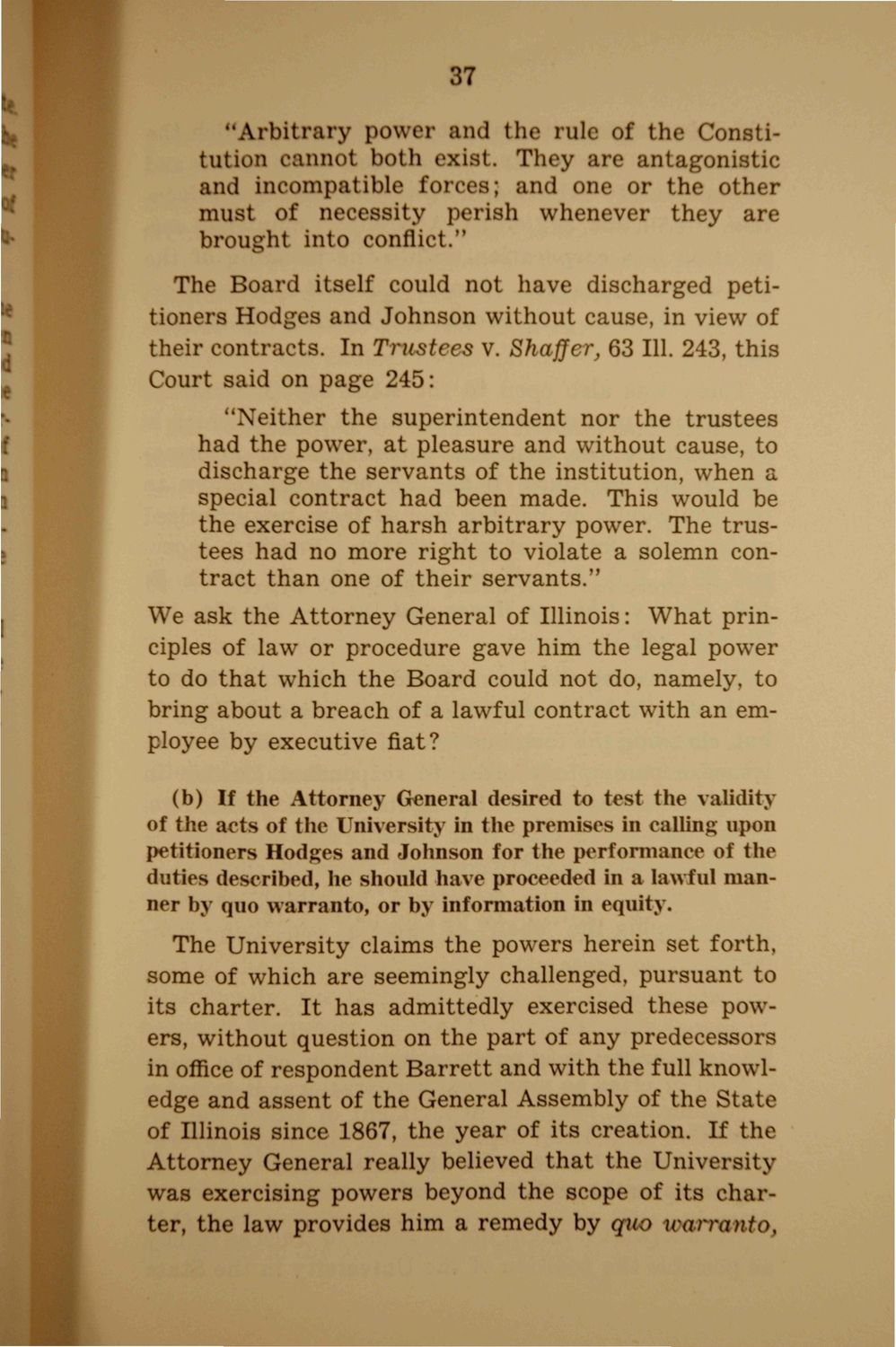| |
| |
Caption: Booklet - UI Charter of Freedom (1942)
This is a reduced-resolution page image for fast online browsing.

EXTRACTED TEXT FROM PAGE:
37 Arbitrary power and th rule of the Constitution cannot both exist. They are antagonistic and incompatible fore and one or the other must of necessity | rish whenever they are brought into conflict." The Board itself could not have discharged petitioners Hodges and Johnson without cause, in view of their contracts. In Trustees v. Shaffer, 63 111. 243, this Court said on page 245: "Neither the superintendent nor the trustees had the power, at pleasure and without cause, to discharge the servants of the institution, when a special contract had been made. This would be the exercise of harsh arbitrary power. The trustees had no more right to violate a solemn contract than one of their servants." We ask the Attorney General of Illinois: What principles of law or procedure gave him the legal power to do t h a t which the Board could not do, namely, to bring about a breach of a lawful contract with an employee by executive fiat? (b) If the Attorney General desired to test the validity of the acts of the University in the premises in calling upon petitioners Hodges and Johnson for the performance of the duties described, he should have proceeded in a lawful manner by quo warranto, or by information in equity. The University claims the powers herein set forth, some of which are seemingly challenged, pursuant to its charter. It has admittedly exercised these powers, without question on the part of any predecessors in office of respondent Barrett and with the full knowledge and assent of the General Assembly of the State of Illinois since 1867, the year of its creation. If the Attorney General really believed t h a t the University was exercising powers beyond the scope of its charter, the law provides him a remedy by quo warranto.
| |